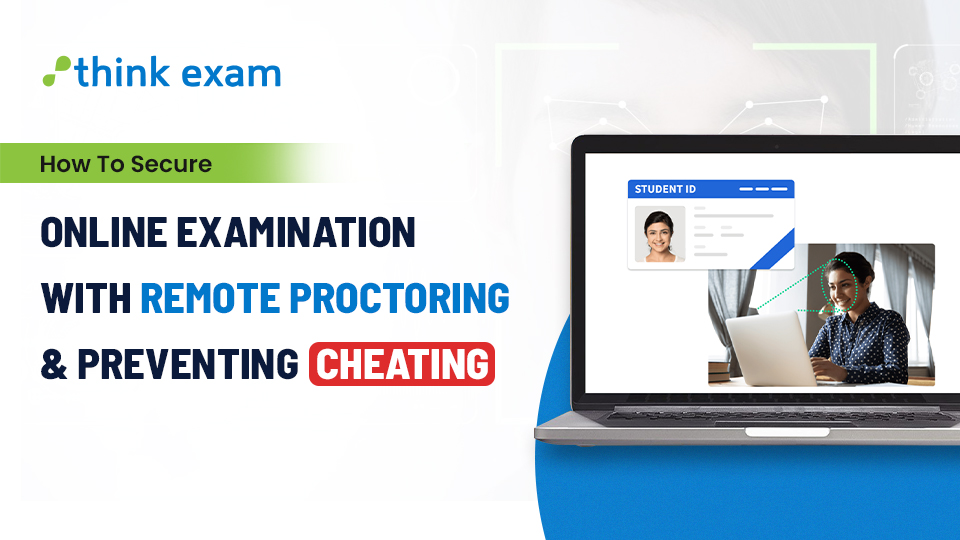In the outgoing pandemic, examination centers are shut down. Many institutes are relying on online examinations to continue the teaching process. There is a huge demand for online visibility in the current scenario. Test centers are looking for organizations that can eliminate the problem of conducting exams manually. Remoting proctoring makes the exam authenticate and helps in conducting fairer exams. In the competitive era, everything is done online. Having an online examination software implies that candidates can give exams at the preferred location, there is no need to go to the exam center for giving the exam.
There are a lot of doubts among teachers and students about online exams like How safe it is? Is it authentic? How it will check the candidate’s ID ? etc. Online examination is famous for their accuracy and authenticity. It is easy to conduct an online exam as there are no location constraints, also it is relatively affordable and time-saving. The primary aim of the exam is to test the candidate’s ability. If the candidate cheats in the exam then the results would be inaccurate to test the ability of the candidate. The main concern in preventing cheating is content leakage which can hamper the authenticity of the exam.
How to prevent cheating?
The first step of the online examination is to determine the identity of the candidate and confirm whether the candidate is right or not. This is done by displaying the photo ID or answering personal questions. There are many ways through which you can secure an online examination, here are a few points which are as follows:
- Secure Browser: Security is the critical aspect of the examination. You can prevent cheating through a unique feature of disabling the option of opening any browser during the examination. It would prevent a candidate from opening any other browser.
- Remote Proctoring: Remote proctoring is a feature where a physical proctor is not needed. A candidate is monitored with the help of a mic, webcam, and access to the candidate’s screen. In this process, the candidate’s identity is checked by the proctored. Once the identity is checked, the image and video of the candidate are captured. As far as remote proctoring is concerned, auto proctoring would keep a record of the candidate’s movement.
- Setting a timer: When a candidate is prepared, it won’t take him much time to fill in the correct answers. By setting a timer, it would easier to prevent cheating during the online examination.
Proctor can see live streaming of candidates attempting the exam
- Detecting objects during an online exam: Remote proctoring can help prevent cheating by detecting any object such as a mobile phone.
- Remote Candidate Authentication: Candidate authentication is the primary step of an online examination. Many institutions are facing problems in adopting the online examination process when it comes to ID authentication. With the help of remote proctoring, the system validates the candidate who is giving the exam by comparing the details that he or she has shared during registration. If the ID is not valid, a proctor may reject the candidate.
- Data Encryption: the online examination data is encrypted to prevent any misuse of data. It plays a significant role in preventing unauthorized access to the question paper, and also to avoid result manipulation. The entire communication should be between the server and the examination client.
Conclusion
Considering the current scenario, online examination software is playing a significant role in conducting a fairer and more secure examination. Many organizations are relying on online examination software to keep up with the examination process ongoing. In the ongoing pandemic, students are suffering the most as they are facing issues in adopting new learning techniques. So, to keep up the learning and development of online examination software organizations are playing a significant role.
Learn More about Remote Proctoring Technology
- Think Exam Remote Proctoring Software: Know all about its processing from start to end!
- How Artificial Intelligence is used in Online Proctoring Examinations?
- What is a Remote Proctoring Process? Can online proctoring detect screen Sharing?
- How does Online Proctoring Software work? How to appear in a Remote Proctored Exam?
- What is a proctor? How will you prevent candidates from cheating in the online examination as a proctor?








